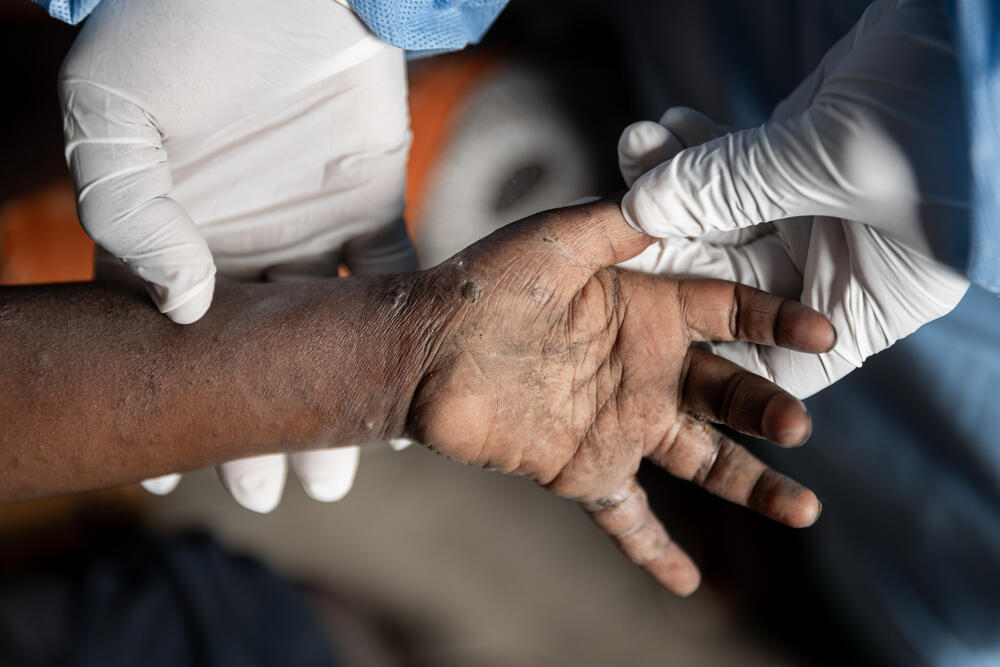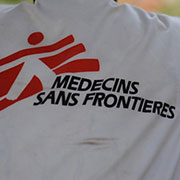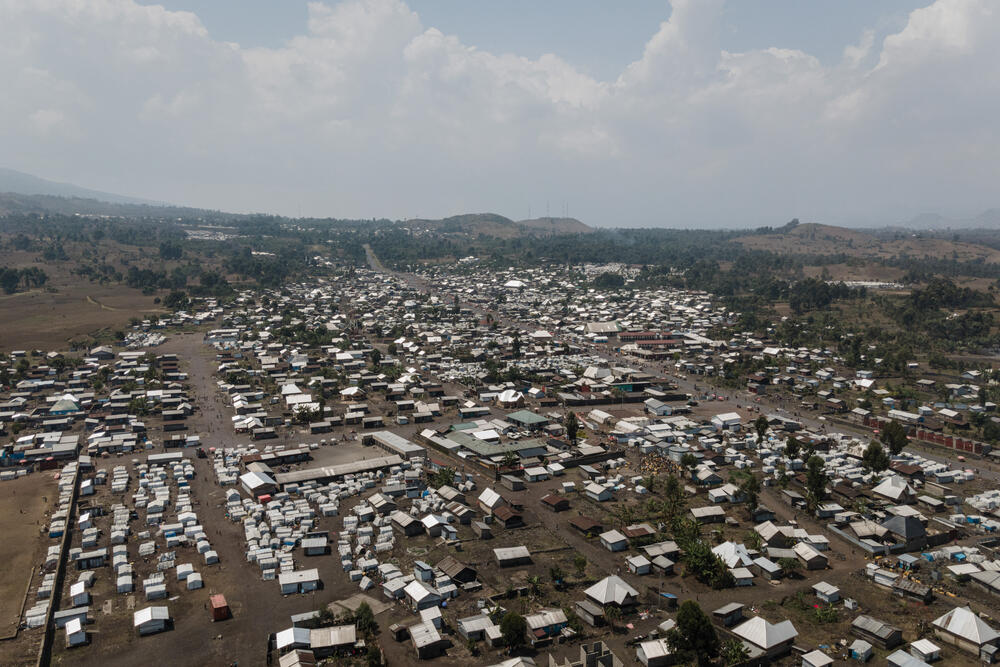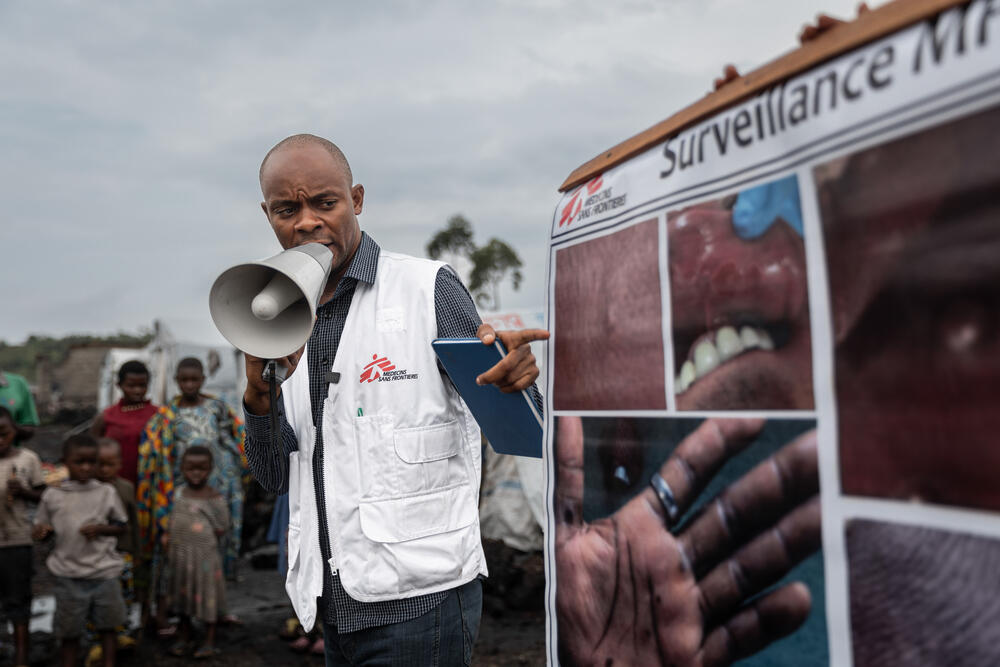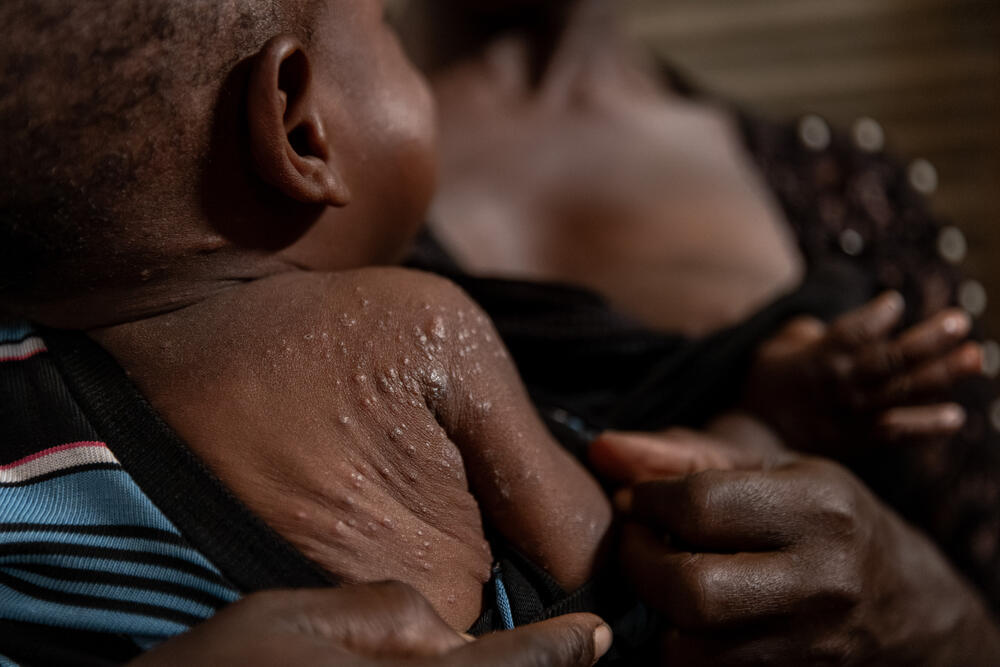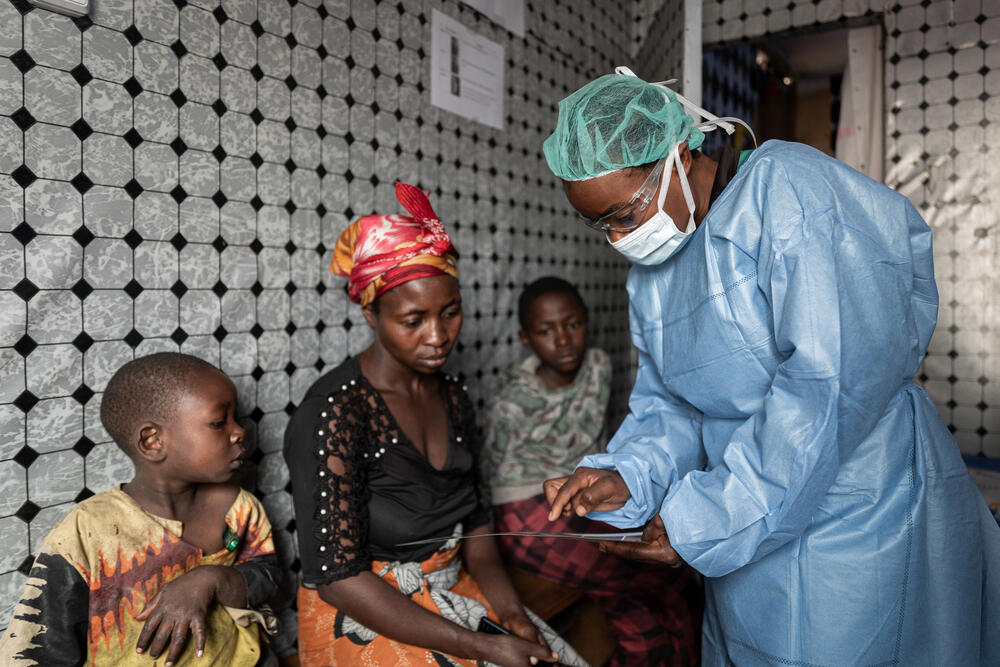Mpox: “We cannot rely solely on vaccines to fix the problem”
Dr Tejshri Shah explains that vaccines alone won’t be ‘magic bullets’ to contain mpox: the appalling living conditions of people in displacement camps must be improved.
She shares her thoughts having recently returned from North Kivu, in the Democratic Republic of Congo (DRC), the country at the epicentre of the current mpox epidemic in Africa.
"In the city of Goma, many people I talked to seemed to sense that something new, uncertain, and frightening is coming. But no one can yet predict what it will mean for them or how deeply it will impact their lives.
Mpox is not new in the DRC. The disease is endemic in several parts of the country, and notifications of cases have been on the rise for the past decade.
However, in North and South Kivu provinces, the virus has mutated into a form that seems to be more transmissible between humans. This is a significant concern as cases have been reported in very densely populated areas like Goma – a city of two million people – and in sites where hundreds of thousands have sought refuge due to the ongoing violence in North Kivu.
Why should we be worried about mpox?
While the lethality of this new strain remains limited, there is still reason to worry.
Why? Because conditions necessary to prevent it from spreading in and around Goma are simply not in place, and the capacity to provide care for patients at risk of complications – young children, people with advanced HIV – remains limited.
How can we expect families living in tiny shelters, without adequate water, sanitation facilities, or even soap, to implement preventive measures? How can malnourished children have the strength to ward off complications?
And how can we expect this variant – which is notably transmitted through sexual contact – to not spread in displacement sites given the dramatic levels of sexual violence and exploitation affecting girls and women living there?
MSF has repeatedly denounced the inhumane living conditions that people face in the camps, and the glaring gaps in the humanitarian response.
Underlying problems
More than two years after the start of the so-called “M23 crisis” - the conflict between the March 23 Movement and government forces - displaced families living in the overcrowded camps still lack the essentials. This includes food, water, safety, basic hygiene items, as well as access to sanitation and healthcare.
“Tried-and-tested solutions to prevent the spread of the epidemic are unimaginably difficult to implement”
During a counselling session that I attended with survivors of rape, a woman told me she lives with her seven children under a plastic sheet. Her partner abandoned her after the rape.
For women like her, the tried-and-tested solutions to prevent the spread of the epidemic are unimaginably difficult to implement. If she develops a rash due to mpox, she will be told to change her linens, wash everything thoroughly, disinfect her belongings, and isolate herself until she heals.
But how can she wash without soap and with only a few litres of water available each day? How can she isolate herself and protect her children while living together under their minuscule plastic sheeting shelter?
If she isolates, who will get food for the kids? Who will collect firewood? Who will comfort the newborn?
For her and all those who have sought refuge in the displacement camps, the mpox epidemic feels like just another challenge amid a torrent of problems. And, frankly speaking, not the most urgent one given the daily struggles they face, including outbreaks of other life-threatening diseases such as measles or cholera.
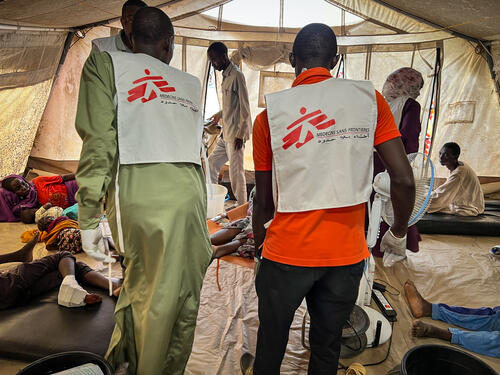
Our work saves lives
How to address the challenges of mpox
Yet, mpox is there and needs to be tackled. To address this new, additional challenge, we need to make survival easier for people through a response that is tailored to their specific needs and real-life challenges.
This starts by listening to people, understanding their needs and providing them with basic supplies for infection control: water, soap, disinfectant, sanitary installations. These are simple but essential.
We cannot rely solely on the arrival of vaccines to fix the problem. Improving people’s living conditions is also a critical factor in fighting such outbreaks.
Together with health authorities, our teams do their best to provide care and raise awareness for those living on the sites, as we do in other parts of the country affected by the outbreak.
Like many others, we hope that the long-awaited vaccines will arrive in the country as soon as possible. Yet, they will not be magic bullets: governmental and non-governmental organisations must also urgently address the foundations of the mpox response, which must be adapted to the needs and realities of the people."
MSF and the mpox outbreak
Mpox (previously known as monkeypox) is a viral disease usually found in West and Central Africa.
Since the beginning of 2024, there has been a surge in infections driven by a new variant of the virus. This is centred on the Democratic Republic of Congo (DRC) with cases also reported in neighbouring countries. On 14 August, the World Health Organization classified the mpox outbreak as a “public health emergency of international concern”.
Médecins Sans Frontières / Doctors Without Borders (MSF) teams are already present in the DRC, where we are treating patients and working to protect at-risk communities.
